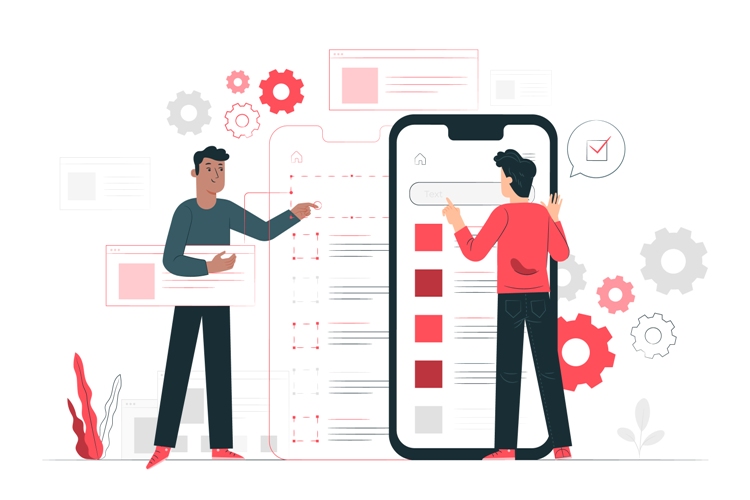Best Practices of Android Educational App Development in 2023
To learn something new these days, all you need is a smartphone and an educational app. Just like that, if anyone wants to teach something, they can spin something like Google Classroom, upload the learning materials, and start to spread knowledge. Aren’t we living in the best time of history for learning? Therefore, it is not a surprise to see startups so much invested in android educational app development. They are trying their best to digitize education. If you are planning to get an educational app developed, this blog will help you with the best practices for android educational app development in 2023.

Here are some of the best practices for android educational app development.
1. Gamification –
To increase engagement, it is crucial to add achievements and user rankings to educational applications. Some of the common gamification traits in popular apps include animated characters, bonuses, and awards for repeated actions, and ranking of users’ performance.
2. Social Elements –
Another crucial aspect of a successful android app development is to add social network-like features. For instance, you can add the feature to “follow” other users. This will encourage in sharing progress. Also, adding rewards to invite friends is an excellent feature to increase engagement. Other social features include:
- Allowing users to comment on live sessions/lessons.
- Stimulating self-regulation by allowing users to flag other users’ comments and content.
- Adding easy ways to share progress.
3. Bite-Sized Lessons –
Consider the structure of the learning materials during android educational app development. What works best is the bite-sized lessons that teach one/two chapters at a time. It is easy to digest information for people in bite-sized lessons.
4. Personalization –
It is essential to address every learner’s needs individually and consider their skills while they progress through the educational app. AI and machine learning can be helpful if you want to ensure a highly professional learning experience.
5. Using Advanced Tech –
There are certain technologies that come in handy during android educational app development, especially when it comes to teaching “real-world” subjects. These include AR/VR. Virtual Reality can place students in the middle of something they cannot reach in the real world. Augmented Reality is super effective for lay-over instructions, directions, and more.
What Can We Learn from the Best Educational Apps?
It is important to remember that people rate apps and share their feedback when they feel positively or negatively about it. Thus, after the android educational app development and deployment, you must use the user feedback as the indicator of what features can be improved or eliminated for a better experience. Here are some elements you should implement in the android educational app.
1. More Control to the Users –
The educational app should offer more control to the users. The users should have the option to fine-tune their experiences. For instance, some users complain that the teaching lessons are too fast or slow in some educational apps. The users should have control on the speed of the lessons.
2. Design for Equality –
It is crucial to remember that the content of the educational app must be optimized for people using different devices. Different users with different devices should have access to educational content. Also, it is better to avoid politics. This is specifically true for educational apps that target wide demographics.
3. Offer Excellent Onboarding Experience –
If the users don’t get a good onboarding experience, they won’t want to come back and won’t suggest others use the app. A poor onboarding experience is as good as having a complete drill on the features with the first launch. It is important to explain different app options gradually while the user encounters them, and there must always be a skip button. Video tutorials work perfectly for showing newcomers around the app.
4. Adjust the App to the Users –
You don’t have to push subscription offers after every class if the users keep pressing cancel every time. Figure out some other ways. For instance, if you are collecting the age of the users, it is important to adjust the educational content accordingly. Don’t share the same content to every user. Personalization is crucial for android educational app development.
5. Add Parental Filters for Educational Apps for Children –
For any and all educational apps, it is important to prevent children from interacting with commercial links or malicious outbound links. The app must have appropriate parental filters, like adding tasks that only an adult can perform. It is recommended to have multiple parental filters for specific content.
In Conclusion
When it comes to android educational app development, it is crucial to think through every minute detail. You will find some minor tweaks contributing to a better user experience. Take advantage of the target platform during android educational app development, and you can rest assured that the app you are planning to create will be a successful one. For the best android educational app development services, get in touch with us!







